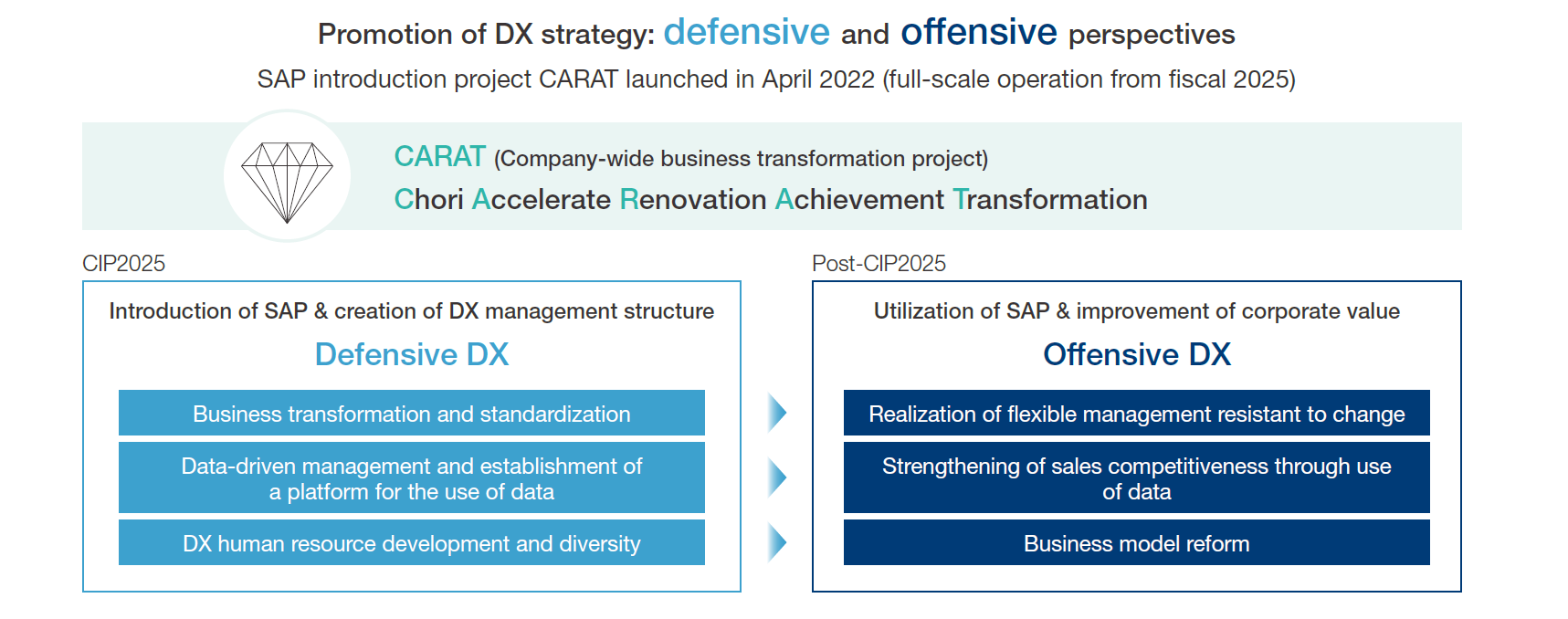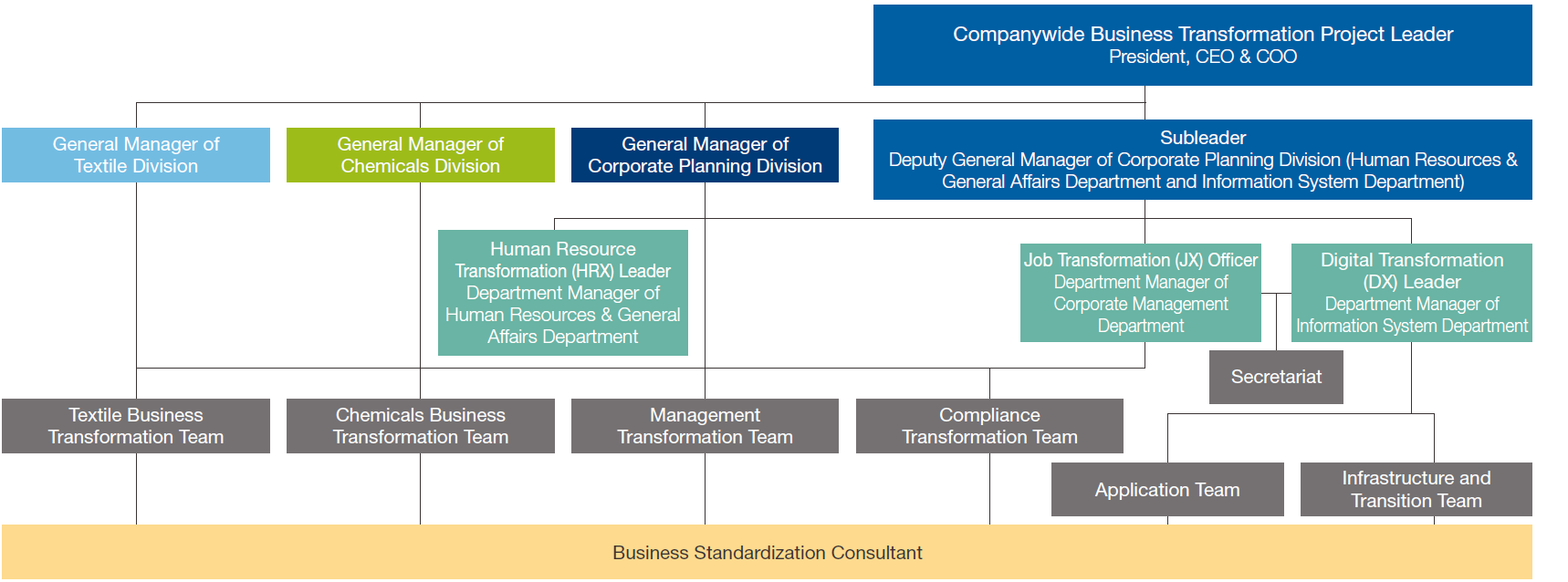A Companywide Business Transformation Project
CARAT: A Companywide Business Transformation Project Based on the Renewal of Our Mission-Critical System
In April 2022, Chori launched its Companywide business transformation project Chori Accelerate Renovation Achievement Transformation (CARAT). Through this project, we aim to deploy our digital functions across the entire Group, streamline and standardize business operations, strengthen business management using data, and improve productivity while exploring the possibility of retraining our workforce and restructuring our organization.
Chori’s Digital Management
In accordance with the basic policy of Chori Innovation Plan 2025, Chori will become “a corporate group that continues to evolve and change on a global scale, underpinned by its exceptional capabilities and expertise.” Along with the three basic strategies we have established in order to realize this basic policy, we are promoting “business and management transformation through DX.” The Company plans to invest approximately ¥5.0 billion into its DX activities over the course of Chori Innovation Plan 2025.

Project Outline
Our Companywide business transformation project was launched in April 2022 with the intention of completely rebuilding Chori as an organization. The project was named “CARAT” to liken Chori, which consists of the Fibers, Textiles, and Garments, Chemicals, and Machinery businesses, to a diamond with several facets and incorporate the meaning that the Company will continue to refine its attractiveness and shine even more brightly in the future. We aim to develop a next generation mission-critical system (SAP S/4HANA Cloud ERP) that facilitates our business and management transformation by standardizing and then automating and visualizing operations and further restructuring our operations and organization.
By deploying DX functions across the entire Group, streamlining and standardizing business operations, enhancing business management, and improving productivity, we aim to build a foundation that will enable us to continue to achieve sustainable growth.
Timeline for Implementation of New Mission-Critical System
We aim to launch full-scale operations of our new mission-critical system in April 2025.

Promotion Structure
The project is conducted under the direction of the Company’s president, CEO & COO, who assumes the role of the project leader, with the overall policy formulated mainly by members selected from each department and Chori’s new business model created through the participation of all employees. Discussions are held between project members and at each business site to create a framework that will serve as the foundation for Chori’s further growth.

Development of Digital Experts
Chori will secure and develop the business unit personnel and systems personnel necessary to promote DX.
- Business unit personnel are well-versed in the Company’s business activities and understand the role of digital technology. They are responsible for securing the human resources who will spearhead DX in each business segment and implementing DX throughout the organization.
- Systems personnel are well-versed in digital technology and the use of data. They are capable of designing and developing a Companywide platform for data use.
Goals

①Establish a platform for data use, realize strategic management, and strengthen sales competitiveness to achieve increases in corporate value
Implement a management dashboard and make quick and accurate management decisions through the use of data
②Enhance productivity of administrative duties by standardizing, automating, and consolidating operations and transition to a more sophisticated human resource and organizational structure
Reduce the workload of data entry and other tasks and transition to a more sophisticated and strategic operational system for data analysis and other duties
③Standardize and automate business operations across the Group to mitigate internal control risks and ensure compliance
Ensure compliance by strengthening system controls and reduce the workload of internal control audits
④Promote new workstyles, such as remote work and paperless operations
Enhance productivity and quality of remote work through digitalization and improved workflow
